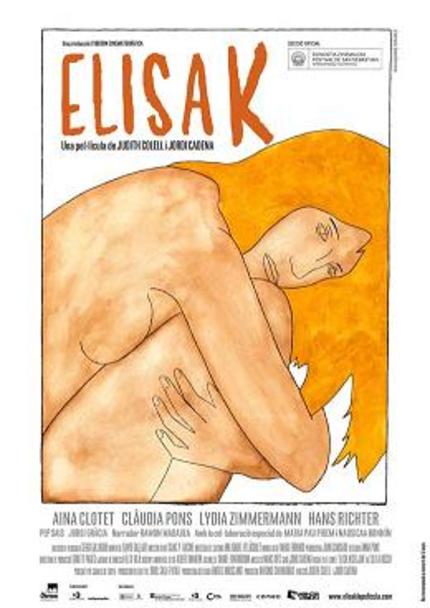VIVA 2011: ELISA K review

At just over seventy minutes long, it's a simple story, where the depth (supposedly) comes from what's left to our imagination or what goes unsaid between the cast. The eleven-year-old Elisa has a happy, if fairly unremarkable childhood until one day, something so terrible happens to her she can't process the resulting trauma. She doesn't tell anyone and represses the memory then, fourteen years and change later, it returns completely by chance, forcing her to deal with it.
Without wanting to spoil what actually takes place (though it's not hard to guess) this is a very real, very horrible, emotionally weighty subject the directors are clearly anxious to treat with sensitivity and the appropriate amount of restraint. It's not that the way they attempt this has the opposite effect, exactly - there's little if anything gratuitous or disrespectful about Elisa K - but in its own way it's about as unsubtle as cinema gets.
Far too much of the first two thirds or so is like some awful parody of arthouse self-indulgence. Colell and Cadena shoot in black and white in a strange, overly mannered style presumably trying to evoke the idea our memories are overly embellished or unreliable. Where Elisa would have blocked things out or been excluded it picks up on minor ephemera, noises or background detail, and for more lasting images it frames them like a page in some coffee-table artbook.
To say the directors and their crew are not without talent isn't meant to be dismissive. Much of the cinematography would make for a tremendous talking point hanging on someone's wall. But the film never really brings all of these individual stills together. There's no sense this is either our perception of the way Elisa remembers what happens, Elisa's own self-awareness or a mix of the two.
Worse still, Colell and Cadena seem completely committed to the way they're telling the story. Dedication from the directors should be welcome, and obviously this is not a film that really warrants light relief, but the unrelenting emphasis on their bizarre aesthetic leaves you thinking - is it me? Is there something I'm just not getting?
While the film was based on a novel this doesn't excuse some truly horrendous use of voiceover, so incessant, superfluous and downright patronising it seems unbelievable anyone could not be aware of how it comes across. Unsurprisingly, the most effective scenes earlier on are those that drop the narration, or are almost silent - but then it kicks in yet again, bringing that uncomfortable self-doubt back with it.
And though the good stuff hides in the final act, the way Colell and Cadena handle the shift to colour seems equally problematic. There's no real reason for it beyond it marking the passage of time. The older Elisa (Aina Clotet) acts no different, shows no real development beyond growing up and heading off to college. There's nothing to indicate that in itself is supposed to convey anything, so it seems equally as hollow as everything else.
After all that negativity, admittedly the one great scene is truly exceptional. Surprisingly, there's no heavy-handed buildup to the moment Elisa remembers what happens, just a brief moment of associations made out of nowhere and then bam. Aina Clotet is absolutely mesmerising, horrifyingly convincing in both mental and physical meltdown.
It feels completely, utterly plausible as a depiction of what it would do to you to have one of the fundamental pillars of your psyche collapse - to realise one of the things you thought made you who you are was a lie. There's even a brief moment of visual trickery, simple, predictable but so effective it makes an earlier dream sequence seem even more pathetically mishandled.
But the ending fails to make anything out of this. While a neat and tidy climax would feel like an insult of sorts, given the tone and subject matter, the way the film wraps up offers little or no closure. It's not that anyone ought to say out loud 'I have learnt X, Y or Z today', but they don't seem to be internalising any kind of resolution either. Past that one shattering breakdown, they're back to being ciphers, leaving you wondering why you should care.
One great scene doesn't make a film, basically. There is talent in Elisa K, real, standout talent, and its heart is definitely in the right place - but it tries so hard for gravitas and meaning it just ends up like some impenetrable gallery exhibit where no-one bar the artist knows what's going on. As a showcase for an actress who deserves some more recognition outside her domestic market, it's fine. As a literary adaptation, a plea for compassion and understanding, or even just as a film it's difficult at best to recommend.
(Elisa K was screened as part of the 17th Viva! Spanish and Latin American Film Festival running from 5th-27th March 2011 in Manchester.)

Do you feel this content is inappropriate or infringes upon your rights? Click here to report it, or see our DMCA policy.






